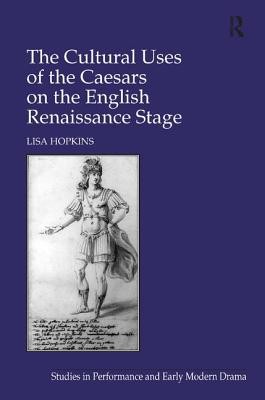
- We will send in 10–14 business days.
- Author: Lisa Hopkins
- Publisher: Routledge
- ISBN-10: 0754662632
- ISBN-13: 9780754662631
- Format: 15.6 x 23.4 x 1.1 cm, kieti viršeliai
- Language: English
- SAVE -10% with code: EXTRA
The Cultural Uses of the Caesars on the English Renaissance Stage (e-book) (used book) | bookbook.eu
Reviews
Description
Caesarian power was a crucial context in the Renaissance, as rulers in Europe, Russia and Turkey all sought to appropriate Caesarian imagery and authority, but it has been surprisingly little explored in scholarship. In this study Lisa Hopkins explores the way in which the stories of the Caesars, and of the Julio-Claudians in particular, can be used to figure the stories of English rulers on the Renaissance stage. Analyzing plays by Shakespeare and a number of other playwrights of the period, she demonstrates how early modern English dramatists, using Roman modes of literary representation as cover, commented on the issues of the day and critiqued contemporary monarchs.
EXTRA 10 % discount with code: EXTRA
The promotion ends in 21d.07:17:31
The discount code is valid when purchasing from 10 €. Discounts do not stack.
- Author: Lisa Hopkins
- Publisher: Routledge
- ISBN-10: 0754662632
- ISBN-13: 9780754662631
- Format: 15.6 x 23.4 x 1.1 cm, kieti viršeliai
- Language: English English
Caesarian power was a crucial context in the Renaissance, as rulers in Europe, Russia and Turkey all sought to appropriate Caesarian imagery and authority, but it has been surprisingly little explored in scholarship. In this study Lisa Hopkins explores the way in which the stories of the Caesars, and of the Julio-Claudians in particular, can be used to figure the stories of English rulers on the Renaissance stage. Analyzing plays by Shakespeare and a number of other playwrights of the period, she demonstrates how early modern English dramatists, using Roman modes of literary representation as cover, commented on the issues of the day and critiqued contemporary monarchs.


Reviews